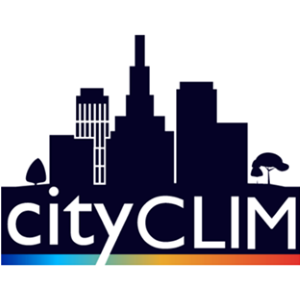NEXT GENERATION URBAN CLIMATE SERVICES USING ADVANCED WEATHER MODELS AND NEW DATA SOURCES.
Climate change has significant impacts on human life in cities, e.g., habitability, quality of life, etc. Urban modeling usually addresses the adverse impacts on human life, such as persistent heat or air pollution. Acquiring knowledge about the evolution and distribution of heat stress in different parts of an urban area (downtown, residential, commercial, industrial, streets/trails, parks, etc.) can prove crucial for urban planning in view of climate change, for example, but also for individual everyday decisions.
Urban heat islands (UHIs) result from urbanization, which alters the thermal and radiative properties of natural landscapes. Excessive heat, especially when combined unfavorably with humidity and/or air quality, negatively impacts not only human health, but also labor productivity and urban metabolism.
Mitigation measures for UHI can be identified by analyzing the root cause of the problem. Providing actionable and viable information to address climate change mitigation and adaptation challenges and engaging citizens and decision makers from the outset through user-centered urban climate services (CCS) requires advanced weather models combined with data from multiple data sources, as well as a state-of-the-art technical environment for effective development of such services.
Therefore, the Next Generation City Climate Services using Advanced Weather Models and Emerging Data Sources (CityCLIM) project aims to develop an open platform and advanced urban weather forecasting tool to run a high-resolution (100 m x 100 m) meteorological model for different cities in Europe using various input data sources, such as in-situ measurements, aerial and satellite data. The results of the resulting high-resolution information and forecasting tool will be used to provide near real-time warnings to the city and its citizens, and to generate impact maps for different mitigation scenarios that can be implemented in urban areas.
The results of such forecasts and simulations will be made available through a series of CCSs.
More information under: https://www.cityclim.eu/
Follow us on Twitter
Follow us on LinkedIn




